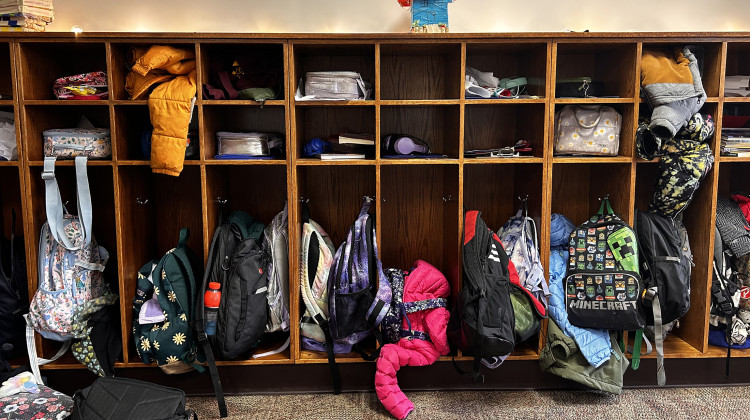
About one in five Indiana students missed so much school during the 2023-24 academic year they were considered chronically absent.
Eric Weddle / WFYIThe number of students who are chronically absent from Indiana schools surged during the pandemic and remains stubbornly high. But while the severity of attendance problems has become clear, many schools and communities are struggling to improve attendance.
That was the challenge at the center of a conference on school attendance in Indianapolis this week. The gathering drew hundreds of attendees from across Indiana. It included people from the schools, courts, prosecutors offices and the state child welfare system.
About one in five Indiana students missed so much school last academic year they were considered chronically absent. Many Indiana schools and communities rely on punitive approaches to encourage attendance — such as disciplining students or referring them to the court system. Speakers at the conference, however, emphasized the importance of supporting families by trying to figure out why students are missing school and providing resources.
“For years we thought punishment was the way for our students to come to school but we found out that was not the way,” said Flora Jones, the director of student pathways at the Indiana Department of Education.
Panelists spoke about the benefits of creating positive culture in schools so that students feel good about attending. And they encouraged schools to connect families with services and help them with challenges like homelessness and food insecurity as a way of improving student attendance.
In the MSD of Warren Township School district, they opened the Moorhead Community Resource Center to help meet some of those needs. The conference was organized by the Warren Arts & Education Foundation which supports the district.
“All of our systems need to be in that mindset of being solution oriented, not four months down the line. You come in with a problem, how can we eliminate this barrier within the next 72 hours,” said Moorhead program director Rijenna Murray.
Warren educators also shared a data-driven focus on improving attendance that helped the district reduce chronic absenteeism to about 26 percent last school year from more than 60 percent in 2021.
Indiana law requires students to attend school, and if they miss more than 10 days without an excuse, students or parents could end up in court. But the consensus among many speakers was that courts should be a last resort.
Marion County Prosecutor Ryan Mears said that some families have prior negative experiences with prosecutors’ offices or the department of child services that make it hard to build trusting relationships. Instead, communities should rely on local providers who can help families without that baggage.
"It’s really incumbent upon all of us to make sure that we utilize the prosecutor's office and the courts, hopefully very judiciously, and only in those situations where it's people who are just saying, 'I'm not gonna go to school, because I don't care,’ ” Mears said.
The number of students missing significant amounts of school got the attention of state lawmakers last legislative session. Initially, a bill to address school attendance sought to ramp up enforcement of truancy and educational neglect laws. But after behind the scenes conversations, it was overhauled to take a less punitive approach.
Under the new law, Indiana schools are now required to intervene earlier when elementary students miss school without an excuse.
"When you look at the new attendance statute,” Mears said, “it places a huge responsibility on all of you guys, everybody in this room."
Contact WFYI education reporter Dylan Peers McCoy at dmccoy@wfyi.org.
 DONATE
DONATE






 Support WFYI. We can't do it without you.
Support WFYI. We can't do it without you.